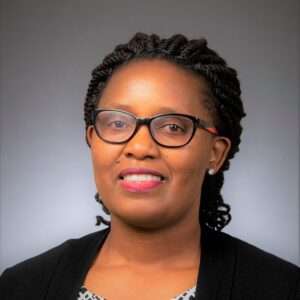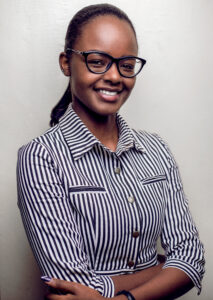Inclusivity starts with language

Jennifer Martin
Director, Pandemic Periods

Choolwe Jacobs
Zambia Correspondent

Ruth Kamau
Research Associate
As a Collective, we are expressing our deep concern over the language used in the Perspective on Periods on Display1 and the colonial implications from the position in which the concerns were addressed.
Over the past two decades, the menstrual health movement has made progressive policy changes, and improved menstrual health for all individuals that menstruate. In the Perspective, Sophia Davis led with an example from the UK, when in fact this movement emerged from low-income and middle-income countries.We ask that authors are encouraged to adopt the decolonising global health movement, particularly when discussing menstrual health, which has become saturated by voices from high-income countries.
Not all women menstruate, and not all individuals that menstruate are women. While we advocate for health care for transmen and non-binary individuals, we must not forget that there are additional challenges that being a woman or a girl can have on menstrual health, particularly in low-income and middle-income countries. If we place menstruation within the wider context of gender equality, it is important to remember that access to menstrual products can be constricted by reduced access to household finances or coercive control, which is a form of intimate partner violence. Furthermore, patriarchal traditions can prevent many women and girls from managing their periods safely and with dignity. For example, the practice of chhaupadi in Nepal, where a women or girl must sleep in a chhau goth (period hut) while menstruating or after childbirth. This practice was criminalised by the Government of Nepal in 2017,5 yet a survey of 400 girls done by the Centre for Research on Environment, Health, and Population Activities found that 60% of these girls knew it was illegal, yet 77% still practised it.
Recently, we have seen a transition from the use of stigmatising terms such as menstrual hygiene, which further perpetuates the ideology that periods are unclean, to the holistic terms in menstrual health with the publication of the new definition.7 We have also moved towards inclusive language, such as individuals that menstruate, so that women, girls, transmen, and non-binary individuals are included, and we have shifted from reducing these individuals to bodily functions or body parts by avoiding the term menstruators.
We also want to highlight the following stigmatising concepts that were used in the Perspective and why these are inappropriate. The term “period poverty”1 is predominately applied in high-income countries, stigmatises individuals that menstruate, and suggests that menstrual health is based only on affordability of products and does not capture the wider accessibility, cultural, or environmental factors that affect menstrual health. Referring to a “new wave of activists”1 is inappropriate; advocacy for women’s health rights has been long standing, and this movement started in Kenya8 more than 20 years ago. The phrase “bodies with vaginas”1 reduces women, girls, transmen, and non-binary individuals to a body part, and is not appropriate and is demeaning. Lived experience organisations have pushed back on the medical profession using labels, such as diabetic and schizophrenic, that define a person by a disease. This phrase is defining a person by a body part, which is even more dehumanising, especially in misogynist societies. Furthermore, we want to highlight that menstruation is a physiological function of the reproductive system, not solely vaginas.
Globally, progressive work and effort have focused on the language used and health education being delivered to different communities to reduce the disparities around menstrual health and prevent medical misogyny. We hope The Lancet, a global thought leader, will employ reviewers with specific experience in the field so that publications use language that is inclusive of all individuals that menstruate, and does not undermine, trivialise, or erase the challenges experienced by women, girls, transmen, or non-binary individuals.
We declare no competing interests.
